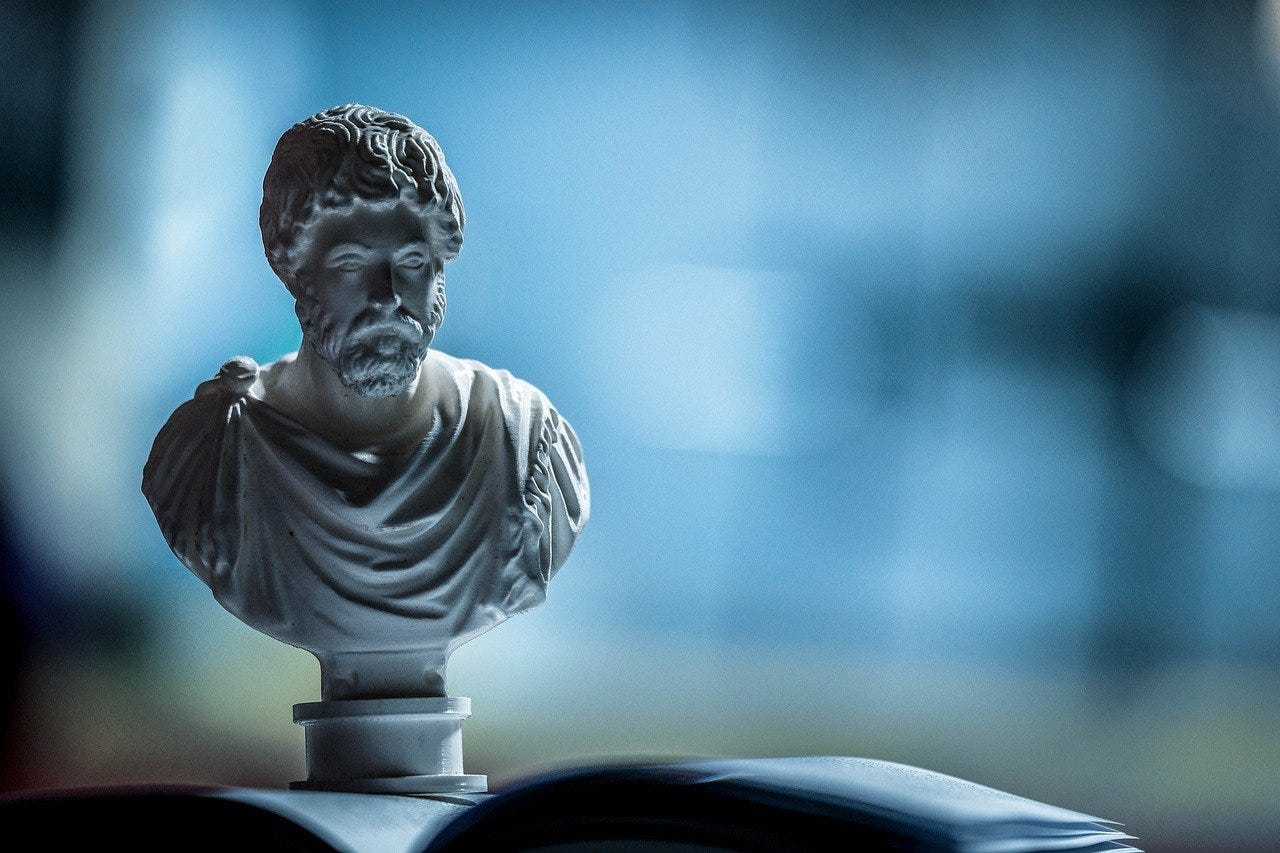How Marcus Aurelius Started His Mornings
There’s a reason people are still reading Marcus Aurelius nearly two thousand years after his death.
I recently wrote about how Jerry Seinfeld is reading Meditations, a collection of thoughts written by Marcus Aurelius, the Roman Emperor known as “the Philosopher King.”
After writing the article, I decided to dust off my own copy of Meditations, a book I read every ten years or so. Despite the name and possibly intimidating subject matter, the book is slim and easily accessible. It’s perfect for a bathroom book or to keep on the nightstand to thumb through for a few minutes before falling asleep.
I’ve been doing just that, and I’m enjoying the book more than ever. Things stand out to me today that didn’t years before. This is no surprise. A man in his mid 40s is different than a 20-year-old college student.
One of the things that jumped out at me recently was how Marcus Aurelius started his mornings; or to be more precise, how he instructed himself to start each morning.
“When you wake up in the morning, tell yourself: The people I deal with today will be meddling ungrateful, arrogant, dishonest, jealous, and surly. They are like this because they can’t tell good from evil. But I have seen the beauty of good, and the ugliness of evil…”
Now, you might be thinking that this is a strange thing to tell yourself each day, narcissistic even. Who is this Marcus Aurelius guy who presumes to know what good and evil is while denying others have any idea, and calling them all kinds of nasty names?
Context matters here.
As emperor, Marcus Aurelius was dealing with a powerful court and lots of power-hungry people. I don’t doubt for a minute that he was dealing with a great many arrogant, dishonest, and jealous people. (It sounds a lot like D.C., and reminds me of this meme.)
Moreover, I don’t doubt that many of these people couldn’t tell good from evil, just like many people today can’t. (To the person who says concepts like good and evil don’t actually exist, I’d say this is merely evidence that you’re the type of person Marcus Aurelius was speaking of.)
Perhaps most importantly, Marcus Aurelius’ lesson doesn’t end here. He reminds himself that the evildoer has “a nature related to my own—not of the same blood or birth, the same mind, and possessing a share of the divine.”
In other words, he possesses the same nature as the evildoer. This is important. Marcus Aurelius grasped Solzhenitsyn’s truth that the line between good and evil doesn’t run between countries, but between every single human heart. And he recognized that every human soul is divine, and part of a universe that is designed to live in harmony with one another.
“We were born to work together, like feet, hands, and eyes, like the two rows of teeth, upper and lower. To obstruct each other is unnatural. To feel anger at someone, to turn your back on him: these are obstructions.”
There’s a reason people are still reading Marcus Aurelius nearly two thousand years after his death. When you read him, you realize that this is a man who — for all his power, wealth, and wisdom — truly new his place in nature.
There’s not a lot of people you can say that about.




I have it and never finished (Meditations) but I will now. I also received the three books of The Gulag Archipelago for Christmas. I asked for them, but haven’t started them yet. Thanks for the boost.
Rereading it, too, currently. I saw so much Solzhenitsyn in there, that I started reading him along with Aurelius. Frankl fits right in, too.